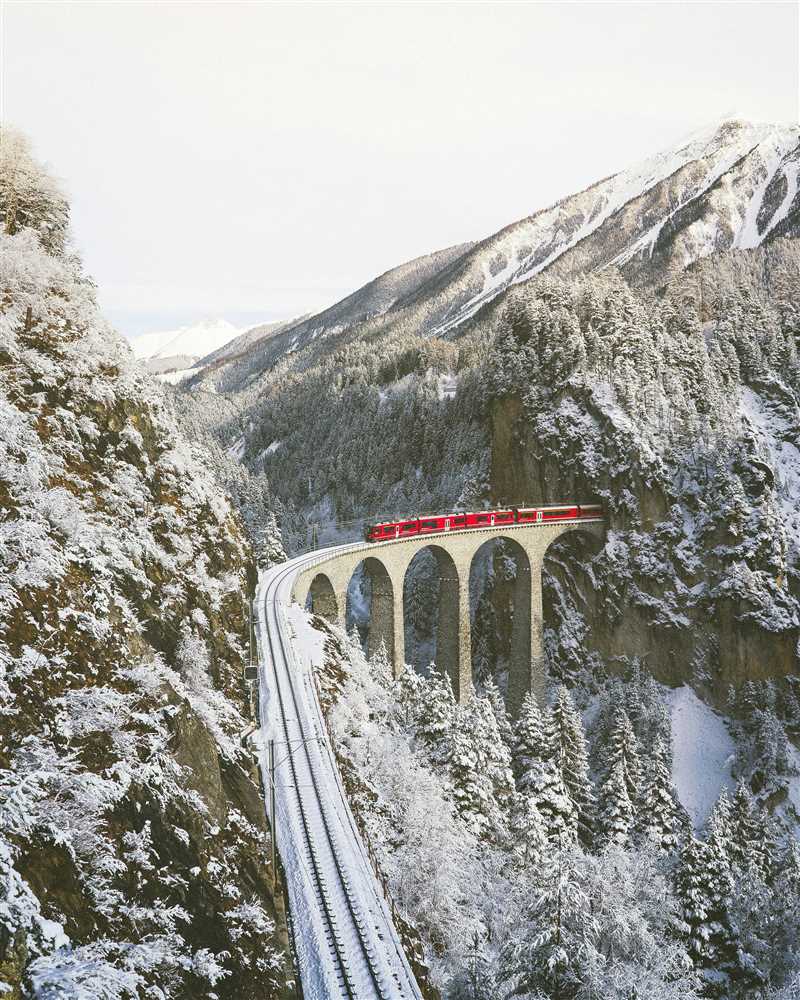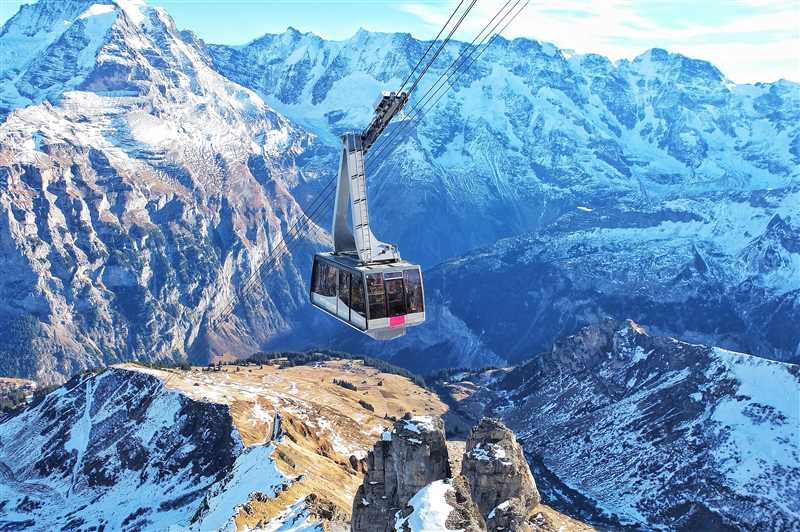Majestic Mountains and Scenic Beauty
Switzerland’s defining feature is its spectacular Alps, which cover about 60% of the country’s total area. Towering peaks like the iconic Matterhorn, Eiger, and Jungfrau attract mountaineers, hikers, and photographers from around the world.
The Matterhorn and Zermatt
The Matterhorn is arguably Switzerland’s most famous mountain, instantly recognizable for its pyramid shape. The charming village of Zermatt, located at its base, is a car-free haven with cozy chalets, luxury hotels, and mountain restaurants. Visitors can take the Gornergrat Railway for panoramic views or ski in winter on some of Europe’s best slopes.
Jungfrau Region
The Jungfrau Region, including towns like Interlaken, Grindelwald, and Lauterbrunnen, offers some of the most breathtaking alpine scenery in Switzerland. The Jungfraujoch, known as the “Top of Europe,” is a must-visit — accessible by one of the highest railways in Europe and offering stunning views over glaciers and peaks.
Crystal-Clear Lakes and Charming Towns
Switzerland’s landscape is also dotted with gorgeous lakes that reflect the surrounding mountains like mirrors.
-
Lake Geneva: One of Europe’s largest lakes, bordered by the cosmopolitan city of Geneva and the French-speaking town of Montreux. Montreux hosts the famous jazz festival every summer, and the nearby Chillon Castle offers a glimpse into medieval Swiss history.
-
Lake Lucerne: Surrounded by mountains and historic towns, Lucerne is famous for its wooden Chapel Bridge and the nearby Mount Pilatus and Rigi excursions.
-
Lake Thun and Lake Brienz: Near Interlaken, these lakes are perfect for boat rides, watersports, and exploring quaint villages.
Swiss Culture and Traditions
Switzerland is unique for its linguistic and cultural diversity, officially recognizing four languages: German, French, Italian, and Romansh. This multilingualism reflects the country’s regional distinctiveness — from the French-speaking west (Romandy) to the Italian-speaking south (Ticino) and the German-speaking majority.
Swiss Cuisine
Swiss food is hearty and delicious, shaped by alpine traditions. Don’t miss:
-
Fondue: Melted cheese served with bread cubes — the ultimate Swiss comfort food.
-
Raclette: Another cheese dish served melted over potatoes and vegetables.
-
Rösti: A crispy potato dish, similar to hash browns.
-
Swiss chocolate: Renowned worldwide for its quality and flavor.
Outdoor Adventures
Switzerland is an outdoor lover’s paradise year-round.
-
Hiking and Trekking: With thousands of kilometers of well-marked trails, hiking in Switzerland ranges from easy lakeside strolls to challenging alpine climbs.
-
Skiing and Snowboarding: Swiss ski resorts like Zermatt, St. Moritz, Verbier, and Davos attract winter sports enthusiasts globally.
-
Cycling: The country offers scenic cycling routes, including the famous Lake Geneva Cycle Path.
-
Paragliding and Skydiving: For adrenaline junkies, Interlaken is a hotspot for paragliding and skydiving over the stunning landscapes.
Efficient Transport and Accessibility
Switzerland’s public transportation system is world-class. The extensive network of trains, trams, buses, and boats allows travelers to explore the country conveniently and sustainably. The Swiss Travel Pass offers unlimited travel on the public transport network and free or discounted entry to many museums and attractions.
The punctual and comfortable trains provide scenic routes like the Glacier Express, connecting Zermatt to St. Moritz through stunning mountain scenery, making the journey as memorable as the destinations.
Cities with a Blend of Modernity and History
While nature steals the show, Swiss cities have their own charm.
-
Zurich: The financial hub and Switzerland’s largest city offers a vibrant cultural scene, upscale shopping, and a beautiful old town.
-
Geneva: Known for international diplomacy, it’s home to the UN headquarters, the Red Cross, and stunning lakeside promenades.
-
Bern: The capital city, with well-preserved medieval architecture, a clock tower, and the beautiful Aare River.
-
Lucerne: A picturesque city famous for its lakeside setting and historic wooden bridges.
Best Time to Visit
Switzerland can be visited year-round, but the experience varies by season:
-
Summer (June to September): Ideal for hiking, lake activities, and festivals.
-
Winter (December to March): Perfect for skiing, snowboarding, and cozy mountain retreats.
-
Spring and Autumn: Great for avoiding crowds and enjoying blooming flowers or fall foliage.
Travel Tips
-
Currency: Swiss Franc (CHF) is the official currency. Credit cards are widely accepted.
-
Language: English is widely spoken in tourist areas, but learning a few local phrases can enrich your experience.
-
Packing: Weather can be unpredictable in the mountains, so layering is key.
-
Safety: Switzerland is very safe for travelers, with excellent healthcare and infrastructure.
Final Thoughts
Switzerland’s timeless appeal lies in its perfect blend of natural wonders, cultural richness, and modern comfort. From serene lakes and rugged mountains to vibrant cities and traditional villages, Switzerland invites you to explore a landscape that seems straight out of a fairy tale.
Whether you’re skiing the slopes of the Alps, cruising a crystal-clear lake, savoring authentic Swiss chocolate, or strolling through cobbled streets, Switzerland will leave you with memories of beauty, peace, and adventure that last a lifetime.






